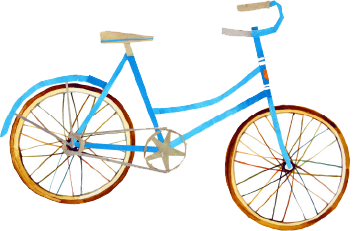Watson
We are a remarkably efficient species, although we never give ourselves enough credit for it. The human brain uses around 25 watts, about the same amount of power as a desktop fan or an aquarium heater, and with that performs about 10 quadrillion calculations per second, about the same as all the computers in the world combined.
When you consider this, it puts into perspective some of our recent achievements in artificial intelligence. It was a big deal when IBM’s Watson supercomputer became the Jeopardy grand champion, a more difficult task than Deep Blue beating Kasparov. But Watson uses about the same amount of power as 30,000 human brains. And it can’t even tie it’s own shoe.
If we want a more fair fight, we could pit Watson against a team of 30,000 people. We would need to find some way to coordinate that 30,000-person team, of course, and we’d probably need some software to do that. But that software would be a lot simpler than Watson.
Here is a little algorithm that should work: To start, each team member gets 10 coins. Any time Alex Trebek gives a clue, team members may ring the buzzer as long as they have at least one coin. Everybody who rings the buzzer has 4 seconds to answer, and in the last second the software tabulates all the responses and returns the most common one. The team members who get it right get an additional coin. Those who get it wrong get a coin taken away.
There are variants of this algorithm, of course. We can weight each response by the number of coins the respondent has. Or we can give more coins for getting the harder clues right.
My point is that, once we consider the true efficiency of a human, we start thinking in a different way. The technology we design has a lighter touch; it aims to aid our natural capacity for intelligence rather than replace it.
And I don’t want to limit myself, here, to intelligence.
We see the same story in mobility. A midsized car gets a little over half a mile per kilocalorie of energy. A human walking gets 10 miles per kilocalorie. Even if we exclude the cost of the car, the cost of the road, and the cost of the infrastructure we build for fueling, walking is still 20 times as efficient as driving.
There does exist a vehicle that is more efficient than a human walking: a human on a bicycle. A human on a bicycle gets 25 miles per kilocalorie, the equivalent of 750 miles per gallon. Like my fictitious Jeopardy software, the bicycle is a light-touch technology, that extends the human’s natural ability for mobility rather than replacing it.
I imagine we may, one day, create vehicles that go 25 miles per kilocalorie, or machines that are able to think and feel and perform a few quadrillion computations per second on 25 watts. I don’t discount this possibility.
But in the meantime, I’d like to make a modest proposal: let us design tools to enhance our fantastically efficient human capacities, and environments to exercise them. Let us make cities that are walkable, roads that are bikeable, jobs that allow us to think, and environments that foster our natural ability to heal.
Even if we ignore the efficiencies, we might find that we’d enjoy it.
